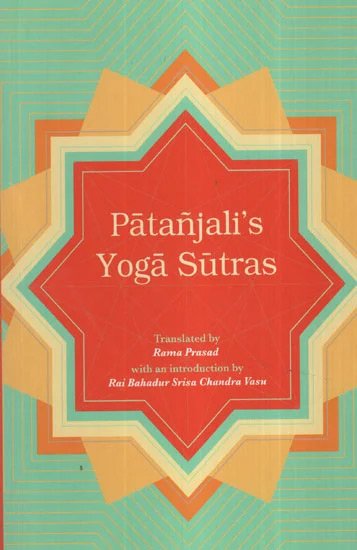Yoga-sutras (with Vyasa and Vachaspati Mishra)
by Rama Prasada | 1924 | 154,800 words | ISBN-10: 9381406863 | ISBN-13: 9789381406861
The Yoga-Sutra 4.20, English translation with Commentaries. The Yoga Sutras are an ancient collection of Sanskrit texts dating from 500 BCE dealing with Yoga and Meditation in four books. It deals with topics such as Samadhi (meditative absorption), Sadhana (Yoga practice), Vibhuti (powers or Siddhis), Kaivaly (isolation) and Moksha (liberation).
Sūtra 4.20
Sanskrit text, Unicode transliteration and English translation of Sūtra 4.20:
एकसमये चोभयानवधारणम् ॥ ४.२० ॥
ekasamaye cobhayānavadhāraṇam || 4.20 ||
eka-samaye—at the same time. ca—and. ubhaye—of both. anavadhāraṇam—impossibility of being cognised.
20. Nor can both be cognized at the same time.—180.
The Sankhya-pravachana commentary of Vyasa
[English translation of the 7th century commentary by Vyāsa called the Sāṅkhya-pravacana, Vyāsabhāṣya or Yogabhāṣya]
[Sanskrit text for commentary available]
And it is not proper that in one moment both one’s own nature and the nature of other objects may be ascertained. The conception of the advocates of momentary existence however is that acting is the same as being; and the subject, object, instrument, &c., are the same too.—180.
‘And both cannot be cognized at the same time.’ To him who says that the mind is both self-illuminating and the illuminator of objects, it cannot of course be possible that the object may be understood at the same time as the self of the mind, and by the the same act. An act which is not different from any other is not competent to bring about an effect which is not different. Therefore a difference of function must be recognized. And to the Vaināśikas there is no separation of operation for difference of effects. And it is not possible that there should be a difference of effects brought about by a single birth which is common to all and does not differ from itself. For this reason the knowledge of the object and the act of knowledge cannot be ascertained in one moment of time. This is what the Commentary renders clear:—‘And in one moment of time, &c.’ And so the Vaināśikas say Whatever is the being of a thing the same is their action and the same the subject object. ‘Instrument, &c.’ Hence the knowability of the mind is for ever; and this removes the idea of its being self-illuminating. This also shows that the seer is unchangeable. Thus all is proved.—20.
